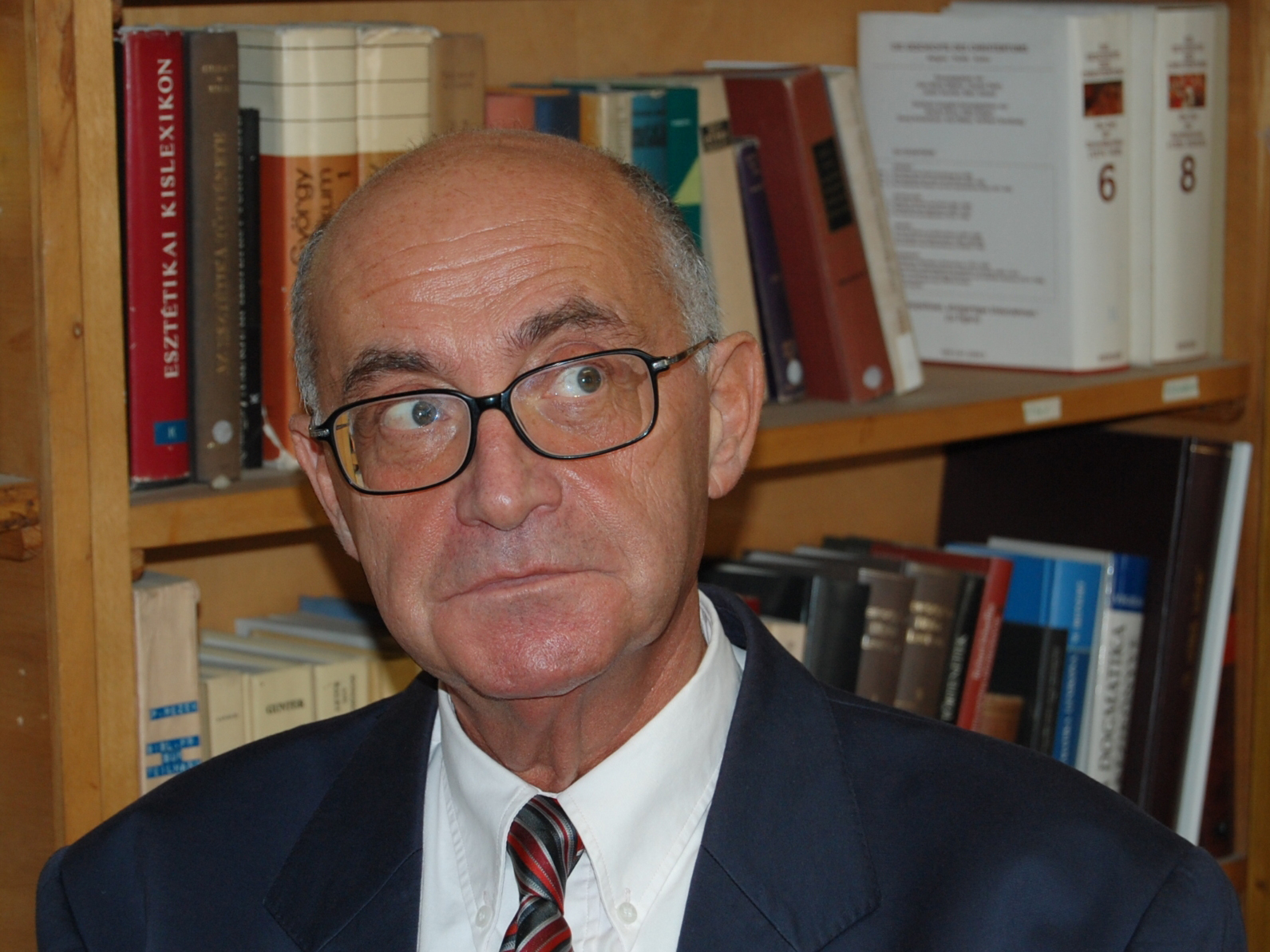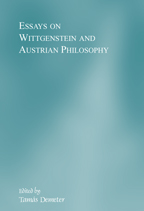
Complete list of publications
Leibniz Professorship 2006/07
Mobile communications research
Invited presentations
 |
CV Complete list of publications Leibniz Professorship 2006/07 Mobile communications research Invited presentations |
2005, IPM 2009, 168 óra; 2011, Magyar Nemzet 2011, Magyar Demokrata 2013, Figyelõ 2018, 168 óra; 2019, 168 óra;
| Philosophical
autobiography
& a guide to my publications Selected Facebook entries A KONZERVATIZMUS ELM LET HEZ / WRITINGS ON THE THEORY OF CONSERVATISM, 1975 2003 (in Hungarian) |
For an extended discussion of issues
I have in my earlier years been interested in see the Festschrift Essays on Wittgenstein and Austrian Philosophy: In Honour of J. C. Nyíri, Amsterdam: Rodopi 2004. |
 |
Works online (Last updated May 18, 2025):
"A demokráciák õsszeomlása és új arisztokrácia szũkségessége" (2025)
"The Collapse of Democracies and the Need for a New Aristocracy" (2024)
"Primordial Images" (2023)
"Back to the Past: Notes towards a Conservative Revolution" (2023)
"Elfelejtett képelméletek - bõvített változat" (2021)
"Back to the Roots – Conservatism Revindicated" (full version with notes, 2020)
"Back to the Roots – Conservatism Revindicated" (without notes, 2020)
"The Merits of Self-Publishing" (2020)
"A képtelen Jung" (2020)
"A Note on C. G. Jung, Heidegger,
and 'The Age of the World Picture'" (2020)
"Forever Jung" (2020)
"Prologue" and "Epilogue"
to the volume Image and Metaphor in the New Century (2019)
"Postscript" to the volume
Vision Fulfilled: The Victory of the Pictorial Turn (2019)
"A Hundred Years On: Dewey s Democracy and Education Revisited" (2019)
Visual Meaning (2019)
"Is There an Objective External World, and Is It Knowable?" (2017)
Pictorial Truth:
Essays on Wittgenstein, Realism, and Conservatism (2017)
"Pictorial Truth" (2019)
"Wittgenstein as a Common-Sense Realist" (2017)
"Conservatism and Common-Sense Realism" (2016)
"Arcjáték és gesztus: Konzervatív nyelvfilozófiai kísérlet" (2016)
"Towards a Theory of Common-Sense Realism" (2015)
"Wittgenstein and Common-Sense Philosophy" (2015)
"Image and Time in the Theory of Gestures" (2014)
Meaning and Motoricity (2014)
"Visualization and the Horizons of Scientific Realism" (2014)
"Konzervatizmus hagyom nyok n lk l" ("Conservatism without Traditions", 2014)
"Images in Conservative Education" (2013)
"Bilder der Zeit: Statik und Motorik" (2012, http://www.daskonstruktiv.at, issue 288)
"A konzervatív idõnézet" /
"Die konservative Zeitanschauung" (2011)
"Time As a Figure of Thought and As Reality" (2010)
"Image and Metaphor in the Philosophy of Wittgenstein" (2010)
"Images in Natural Theology" /
"K pek a term szetes teol gi ban" (2010)
"Die Verr umlichung der Zeit" (2009)
"The Moving Image on a Mobile Device" (2009)
"Gombrich on Image and Time" (2009)
"Metaforák és az idõ valóságossága" (2008)
"Hundred Years After: How McTaggart Became a Thing of the Past" (2008)
"Film, Metaphor, and the Reality of Time" (2008)
"Visualization and the Limits of Scientific Realism" (2008)
"Szubjektív idõ " (2008)
"Idõ és kommunikáciá" (2007) /
"Time and Communication" (2005)
"Time and the Mobile Order" /
"Idõ és mobilrend" (2007)
"W rter und Bilder" / Presentation / Szavak s k pek" (2006)
"Der Mobilgef hrte im Breitbandstrom" /
"Mobilt rs a sz less v sodr ban" (2006)
"Philosophy Today – An Interview"
(2005 – in Hungarian)
"The Networked Mind" (2005)
"Kritik des reinen Bildes. Anschauung, Begriff,
Schema" (2004)
Vernetztes Wissen: Philosophie im
Zeitalter des Internets (2004)
"Enzyklopädisches Wissen im 21. Jahrhundert"
(2003)
"Towards
a Knowledge Society" (2003)
"Netzwerk und Erkenntnismacht" (2003)
"From Texts to Pictures: The New Unity
of Science" (2003)
"Pictorial Meaning and Mobile Communication"
(2003)
"Az MMS képfilozófiájához"
(2002)
"Towards a Philosophy of M-Learning"
(2002)
"Bildbedeutung und mobile Kommunikation"
(2002)
"Hagyomány és képi gondolkodás"
(2002)
"Képek mint
eszközök Wittgenstein filozófiájában"
(2002)
"Wittgenstein's Philosophy of Pictures"
(2001)
"Bilder als Wissensvermittler in der Informationsgesellschaft"
(2001)
"A
gondolkodás képelmélete" (2000)
"The Picture Theory of Reason" (2000)
"Szavak, képek, tudásegész"
(2000)
"Nyitott tudomány, nyitott oktatás:
Internet és interdiszciplinaritás" (2000)
"Információs
társadalom és nyitott mûvelõdés"
(2000)
"Konservativ sein im Zeitalter des Internets"
(1999)
"A virtuális egyetem filozófiájához"
(1999)
"Információs társadalom
és nemzeti kultúra" (1999)
Review of Castells, The Information
Age
- "Castells: The Information Age - Könyvismertetés"
(1999)
"The Idea of a Virtual University: Religious Studies
on the Net" (1999)
"Multimédia és új bölcsészettudomány"
(1999)
"A virtuális egyetem felé"(1999)
"From
Palágyi to Wittgenstein: Austro-Hungarian Philosophies
of
Language and Communication" (1999)
"Globale Gesellschaft
und lokale Kultur im Zeitalter der Vernetzung" (1998)
"Globális
társadalom és lokális kultúra a hálózottság
korában" (1998)
"Global Education
and Local Communities" (1998)
"Post-Literacy
as a Source of Twentieth-Century Philosophy"
(1998)
"The
Concept of Knowledge in the Context of Electronic Networking"
(1997)
"Wittgenstein as a Philosopher of Secondary Orality"
(1996)
"Pal gyis Kritik an der Gegenstandstheorie" (1996)
The Humanities in the Age of Post-Literacy
(1996)
"Hálózat és tudásegész"
(1994)
"Notes towards a Theory of Traditions" (1994)
"Thinking with a Word Processor" /
"Sz vegszerkeszt vel gondolkozva" (1993)
"Hajnal István
idõszerûsége"
"Hagyomány
és szóbeliség"
"Historical Consciousness in the Computer Age" (1991)
"Wittgenstein and the Problem of Machine Consciousness" (1989)
"Some Marxian Themes in the Age of Information" (1989)
Európa szélén (1988)
"The Pitfalls of Left-Wing Epistemology" / "A baloldali ismeretelm let csapd i" (1985)
Georg Lukács, Dostojewski: Notizen und Entwurfe (1985 – edited by Krist f Ny ri)
"Ludwig Wittgenstein as a Conservative Philosopher" (1984)
Ludwig Wittgenstein (1983)
"Wittgensteins Spaetwerk im Kontext des Konservatismus" (1979) /
/
"Wittgenstein's Later Work in Relation to Conservatism" (1982)
/
"Wittgenstein's Later Work in Relation to Conservatism" with notes rectified (1982)
"Wittgenstein 1929–31: Conservatism and Jewishness" (1982/1992)
"Szabadpiac és tekintélyelvû
társadalom: Angolszász liberális-konzervatív
elméletek" (1981)
A Monarchia szellemi életérõl (1980)
"Filozofia és ongyilkosság-statisztika Ausztria-Magyarországon" (1977)
"Musil és Wittgenstein" (1976)
"Wittgenstein's_New_Traditionalism" (1976)
A filozofia rovid torténete:
A V d kt l Wittgensteinig (1974 – társszerz Lendvai L. Ferenc)
"Nemlétezok csillagfényénél I–II" (1972)
"No Place for Semantics" (1971)
"Szemantika nélkul" (1970)
"Kant and the New Way of Words" (1970) /
"Kant és a XX. század materializmusa" (1969)
The orality/literacy approach provided the perspective from which I
for some years viewed the philosophy of the later Wittgenstein – see my papers "Heidegger
and Wittgenstein" (1989), "Thinking with a Word Processor" (1993),
"Wittgenstein
as a Philosopher of Post-Literacy" (1995), and "Wittgenstein
as a Philosopher of Secondary Orality" (1996). My outlook was summed
up in my paper "The Humanities in the Age of Post-Literacy"
(1996 – a paper complementing, and in part superseding, my "Electronic
Networking and the Unity of Knowledge", 1994), as well as in
my talk "Post-Literacy
as a Source of Twentieth-Century Philosophy" (1998).
Subsequently however I had to realize that it is not possible to provide a
correct interpretation of the philosophy of Wittgenstein if his views on the essential role of pictorial representation are
not taken into consideration - see my paper
"Wittgenstein's Philosophy of Pictures" (2001).I have
been active in the work leading up to the Monist
Interactive Issue (July 1997), coordinating a discussion under the
title "The
Concept of Knowledge in the Context of Electronic Networking". Here
I conclude by saying: "At the time I wrote my paper 'Electronic Networking and the
Unity of Knowledge' ... I thought the task of philosophy was unmodified
- even though the phenomena to be analyzed have become so very different.
Today I believe that the task itself is an entirely new one." The task
is new, since philosophy, hitherto concerned with pure texts, now
necessarily becomes involved in the analysis of multimedia documents.
On this topic, see also the talk I gave at the 2000 Kirchberg Wittgenstein
symposium: "The Picture Theory of Reason". – Through
my interest in the technology of communications I became caught up, in 2001,
in a research project on
mobile telephony, a scholarly speaking extremely rewarding project.
The co-ordination of human activities through mobile re-scheduling rather than through the observation
of an absolute public time framework creates a new experience of time:
for me, this experience led to an enthusiastic interest in the philosophy of time.
I came to realize that the philosophy of time and the philosophy of images are
in fact overlapping domains of inquiry. Only moving images – images happening in time –
are full-fledged images; and it is impossible to conceptualize time without having
recourse to metaphors – images – of spatial movement. My book Zeit und Bild:
Philosophische Studien zur Wirklichkeit des Werdens was published in 2012, the volume
Meaning and Motoricity: Essays on Image and Time appeared in June 2014.
A central chapter of the latter is the essay
"Images in Conservative Education". And fate has so organized it that these days I am forced
to return to the topic of my early years, the theory of conservatism.
Conservatism I until very recently regarded as basically a common-sense stance;
hence working on the theory of conservatism I saw as involving, also, working on the philosophy of common sense –
while working on the philosophy of common sense clearly involved, for me at least, trying to get to grips, once more, with Wittgenstein,
see my "Conservatism and Common-Sense Realism", and my online book
Pictorial Truth:
Essays on Wittgenstein, Realism, and Conservatism. The COVID-19 pandemic however completely changed my outlook.
Common sense unaided by critical reflection will not recognize that mankind has many decades ago chosen the wrong turn;
that we have to embark on a road back (see my "Back to the Roots – Conservatism
Revindicated" and "Conservatism in a Changed World").
A conservative
revolution is called for, a revolution Wittgenstein was too conservative to contemplate.
The road back needs an approach much more radical than Wittgenstein's was.
That radical approach has to be outlined by a new intellectual aristocracy. It is the philosophical concept
of a new aristocracy I am working on now. --- Last updated May 18, 2025